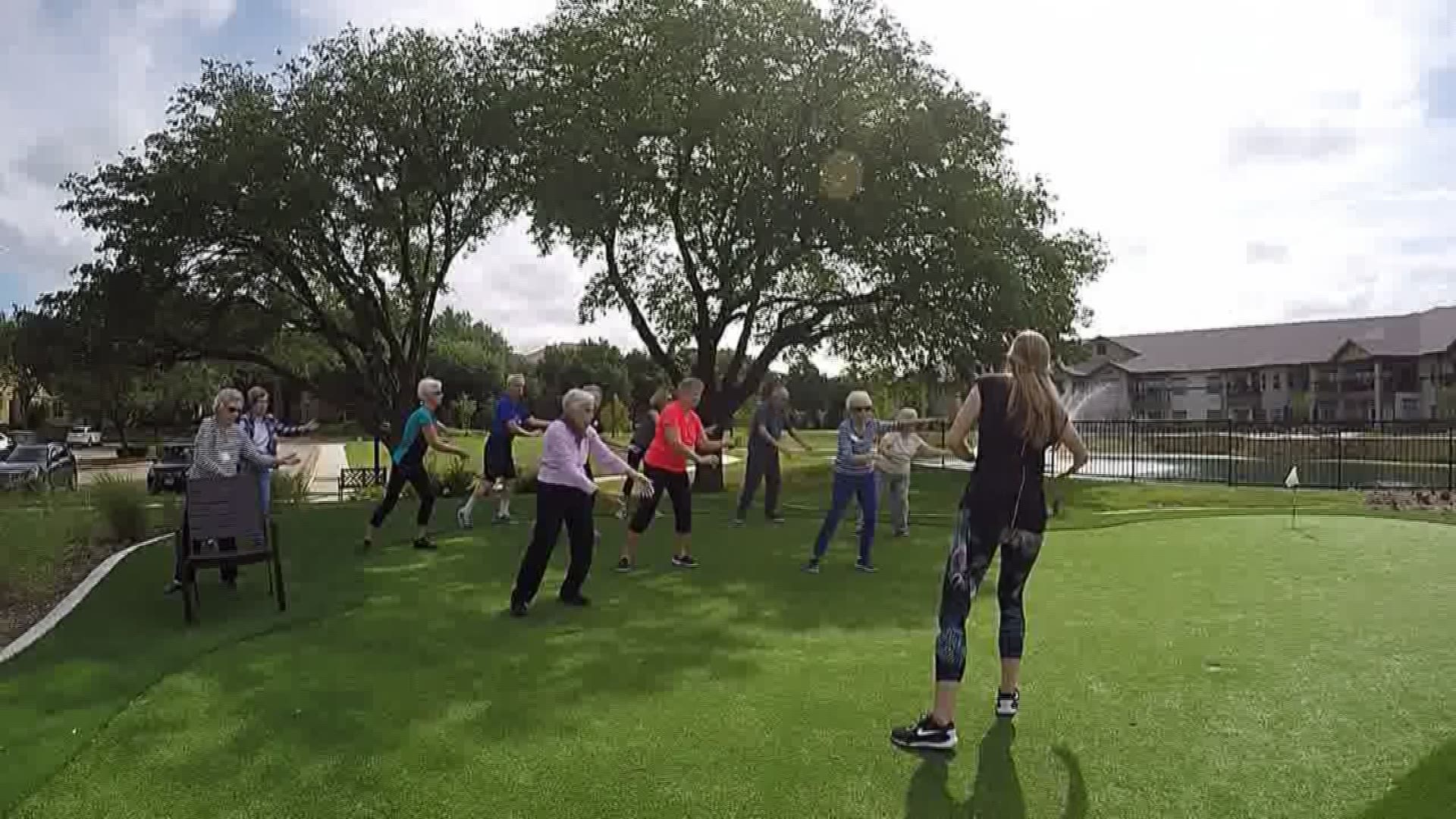At age 86, you could call Venetta Cronin the "O.G" of Tai Chi.
"I love it so I’m a regular," said Cronin, who began practicing the ancient martial art form four years ago.
The Yang short form that she is learning at Presbyterian Village North has been adapted to fit students of any skill level. At the senior living community, students connect with nature and their breath, and gain confidence moving around while strengthening their muscles and bones.
"It's got everything somebody my age needs," said Rich Hohman, who is a sprightly age 77. "It’s got balance, concentration, coordination, memory... you’ve gotta remember all the moves."
Lisenby, who started teaching the class to less than a handful now regularly guides between 10 and 15 students weekly.
"We call it brain challenge," said Lisenby. "I don’t always say the move and they’re always having to pay attention and think about what’s coming up next."
Research shows the benefits of Tai Chi extend far and wide. It relieves stress, reduces bone loss in menopausal women, helps with arthritis pain, and reduces blood pressure.
"A lot of people have this preconceived idea that as you age, that’s your excuse to just start sitting around," said Lisenby. "In honesty, it’s even more important as you age to get out there and keep moving."
And the moves are slow and gentle -- not aggressive for the body.
"If we start feeling pain or something, they’ll say don’t do that," said Cronin. "So I feel like we’re in good hands. They’re not going to stress us out."
Tai Chi also speeds up recovery from strokes and heart attacks and may improve side effects from Parkinson's Disease, Alzheimer's, and Multiple Sclerosis.
"We’re making good progress," said Hohman, who doesn't need much convincing to make it to class.
He and his wife have chosen to stay active, he said, for the last 40 years in order to enjoy their independence.
"I'm well preserved for 77," he laughed.
Here's to 77 -- and beyond. Presbyterian Village North also offers regular yoga classes as well as mindfulness meditation for residents, which is known to improve physical and emotional well-being in addition to supporting brain health and memory retention.

